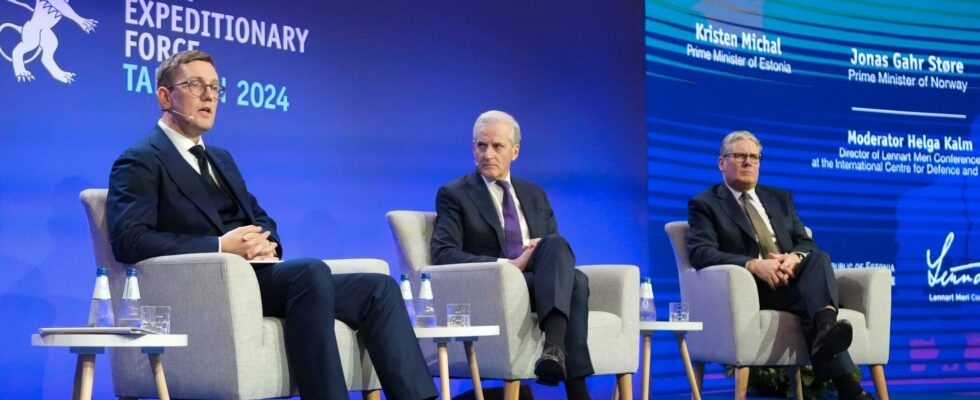unsaveSave
expand-left
full screen Estonian Prime Minister Kristen Michal, Norwegian Prime Minister Jonas Gahr Støre and Great Britain’s Prime Minister Keir Starmer participated in a public conversation in Tallinn ahead of the JEF summit. Photo: Sergei Grits/AP/TT
The rapid response force JEF, of which Sweden is a part, is seeking its role within NATO.
Estonian Defense Minister Hanno Pevkur expects the JEF to intervene quickly if NATO delays.
And he wants the NATO countries to quickly invest more money in defence.
The British-led Joint Expeditionary Force, JEF, celebrates ten years with a summit in Tallinn today.
Prime Minister Ulf Kristersson (M) and other leaders of the ten JEF countries will discuss cooperation in the task force and support for Ukraine.
JEF includes the Nordic and Baltic countries, as well as Great Britain and the Netherlands. The idea is that they should be able to quickly assemble a force if a crisis arises in northern Europe.
Unclear role
What and how JEF will be used is not yet clear. A few sharp interventions have been made. Last year, JEF countries patrolled the Baltic Sea to protect underwater cables against sabotage.
Ahead of the summit, the JEF leaders gave support for Baltic Sea countries, including Sweden, as well as the UK to try to check whether ships in the Russian shadow fleet have insurance certificates, including when they pass through the Oresund and the English Channel.
The JEF leaders will also discuss how to act against Russian hybrid threats and protect sensitive infrastructure against sabotage.
Estonian Defense Minister Hanno Pevkur sees an even greater role for JEF. He expects the JEF to quickly come to the rescue in the event of a Russian attack if NATO delays triggering the defense clause, Article 5, of the NATO treaty.
Pevkur pointed out at a press meeting that Russia is trying to create division among the NATO countries, among other things through influence operations.
– The goal is to create cracks in (NATO’s) decision-making process, if there is a need to trigger Article 5, he says.
Pevkur sees JEF as an extra safety net in such a situation.
More money is required
Estonia hopes the summit will agree on the need to increase defense spending to counter the threat from Russia. The JEF countries are today all above two percent of GDP. But not all other NATO countries do that.
– We will be clear that two percent is not enough. It should be at least 2.5 percent, says Pevkur.
Estonia is aiming for 3.7 percent by 2026. In order to have money for that, the Estonians are introducing a special security tax next year. Sweden moves towards 2.6 percent.
– It is important that the countries’ leaders see that we need to invest more and quickly. We don’t have time to wait until 2032 or 2035 to reach three percent or 3.5 percent, he says.
However, the British Prime Minister Keir Starmer underlined, at a public talk in Tallinn, that decisions to increase defense spending are tough to make. British economy is in bad shape.
